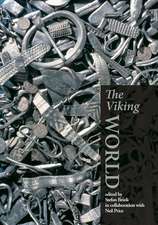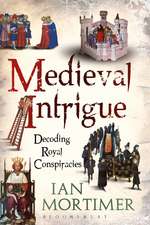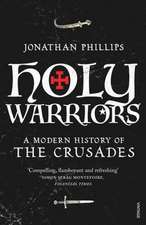Magna Carta: Greenwood Guides to Historic Events of the Medieval World
Autor Katherine F. Drewen Limba Engleză Hardback – 29 sep 2004 – vârsta până la 17 ani
Preț: 227.91 lei
Preț vechi: 453.46 lei
-50% Nou
Puncte Express: 342
Preț estimativ în valută:
43.61€ • 45.06$ • 36.28£
43.61€ • 45.06$ • 36.28£
Carte tipărită la comandă
Livrare economică 19 martie-02 aprilie
Preluare comenzi: 021 569.72.76
Specificații
ISBN-13: 9780313325908
ISBN-10: 0313325901
Pagini: 256
Dimensiuni: 156 x 235 x 20 mm
Greutate: 0.52 kg
Editura: Bloomsbury Publishing
Colecția Greenwood
Seria Greenwood Guides to Historic Events of the Medieval World
Locul publicării:New York, United States
ISBN-10: 0313325901
Pagini: 256
Dimensiuni: 156 x 235 x 20 mm
Greutate: 0.52 kg
Editura: Bloomsbury Publishing
Colecția Greenwood
Seria Greenwood Guides to Historic Events of the Medieval World
Locul publicării:New York, United States
Notă biografică
KATHERINE FISCHER DREW is Lynette S. Autry Professor Emeritus of History, Rice University, Houston, TX. Professor Drew is past President of the Medieval Academy and is currently a Fellow. She is the editor of The Lombard Laws, among other works.
Cuprins
IntroductionKings of England and France during the Making of Magna CartaGlossaryMapsThe Myth of Magna CartaMagna Carta and the ChurchMagna Carta and the TownsMagna Carta and the BaronsMagna Carta and the Common LawMagna Carta and ParliamentBiographies of Persons and Developments Related to Magna CartaPrimary DocumentsAppendix A: The Crusades and Crusading States of the EastAppendix B: The Medieval Trial by OrdealAnnotated Bibliography




















